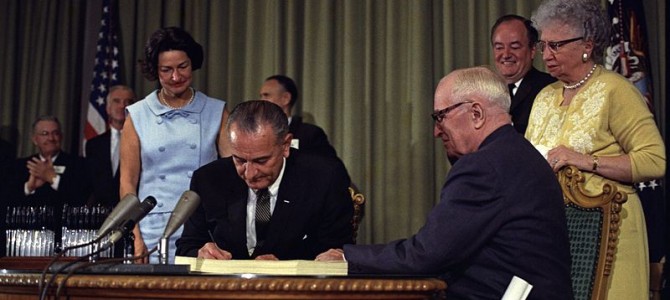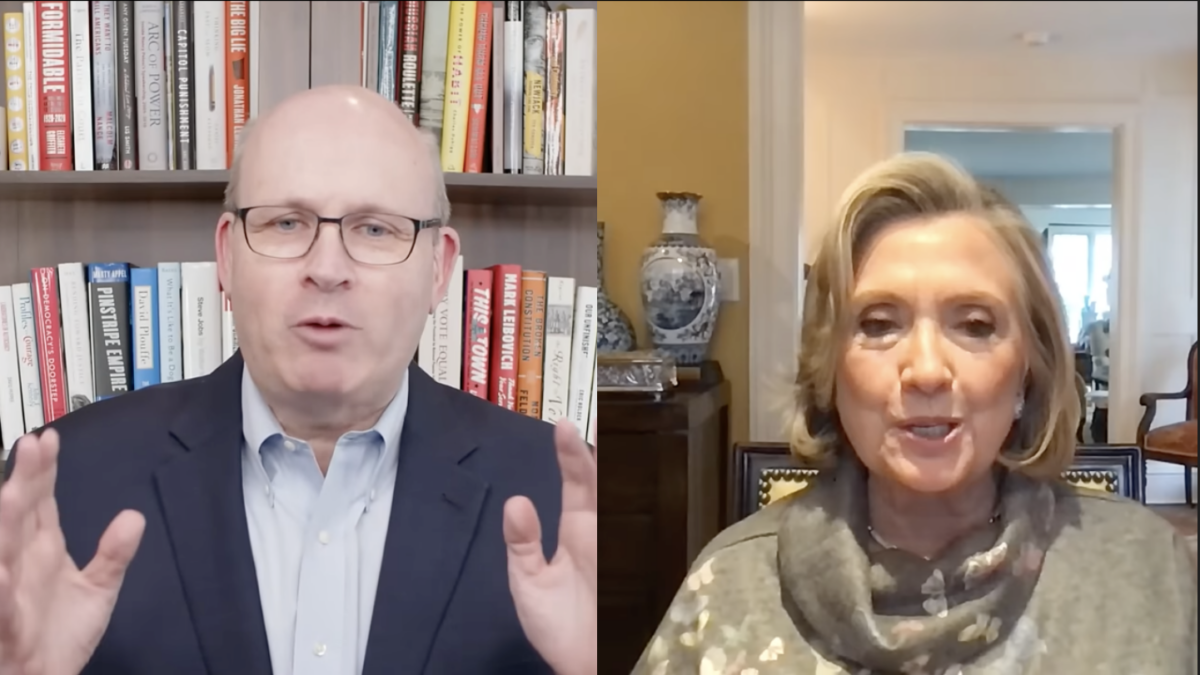Thursday is the 50th anniversary of the University of Michigan commencement speech in which Lyndon Johnson laid out the concept of a “Great Society.” This was the wider framework for the “War on Poverty” he had announced earlier in the year in his State of the Union address.
Reading through it, it strikes me that LBJ’s Great Society speech goes a long way toward explaining why that War on Poverty failed. If you read the speech, LBJ comes across as a big, doe-eyed, muddled-headed hippie.
He warns against “unbridled growth” and “soulless wealth.” Instead, he describes the Great Society as “a place where the city of man serves not only the needs of the body and the demands of commerce but the desire for beauty and the hunger for community.” It is also “a place where man can renew contact with nature” and “which honors creation for its own sake.” Then he unloads on the graduates with all the woozy, unfocused pseudo-idealism we associate with the flower children who were about to sprout like weeds at campuses like the University of Michigan.
Within your lifetime powerful forces, already loosed, will take us toward a way of life beyond the realm of our experience, almost beyond the bounds of our imagination.
Far out, man.
It’s all well and good that LBJ wanted to talk about “the needs of the spirit” and “a richer life of mind and spirit,” though it seems a bit of a stretch for a politician who built his career as a scheming back room arm-twister. Then again, this was 1964 and LBJ was running for president, trying to get elected to the office he had taken over when John F. Kennedy died. So he was no doubt eager to rouse the idealistic youth the way Kennedy had done.
Yet the “unconditional war on poverty” LBJ had announced was a war with distinctly material goals and material means. It required hard questions about how America was going to produce the wealth required to redistribute to the poor, who was going to produce it, and how a vast network of welfare handouts was going to prepare people to integrate themselves back as productive, self-supporting workers in a growing economy. If you read LBJ looking for answers to those questions, you don’t get them. What you get, instead, is an assurance that the prosperous, vibrant economy is here, we’ve already built it, so now we’re free to transcend its requirements as we spin off into a utopia of pure love.
For a century we labored to settle and to subdue a continent. For half a century we called upon unbounded invention and untiring industry to create an order of plenty for all of our people. The challenge of the next half century is whether we have the wisdom to use that wealth to enrich and elevate our national life.
That LBJ’s material goals failed is beyond dispute. The first plank he named for his Great Society was an effort “to make the American city a place where future generations will come, not only to live but to live the good life.” The immediate result was a decades-long collapse of city life and a desperate flight to the suburbs that was only halted in the 1990s. (In some places—Detroit and Chicago come to mind—it continues to this day.) The other big plank? Better public schools and more affordable college education.
We can see why these goals failed, because LBJ had no concern for the principles that animated the political and economic system that had settled a continent and unleashed industry and invention—i.e., for the things that had actually made our society great. His speech is all about how we can take for granted that our economy is producing ever-increasing wealth and prosperity, but to be really “great” we have to subordinate that pursuit of wealth to woozy “spiritual” social goals.
Talk about the Law of Intended Consequences. We did subordinate the pursuit of wealth, taking no account for the actual steps by which individuals take responsibility for their lives and improve themselves by their own effort. Which is why we didn’t get the final escape of the masses from poverty.
Come to think of it, that’s also one of the reasons we didn’t get a spiritually elevated society, either.
Follow Robert on Twitter.








